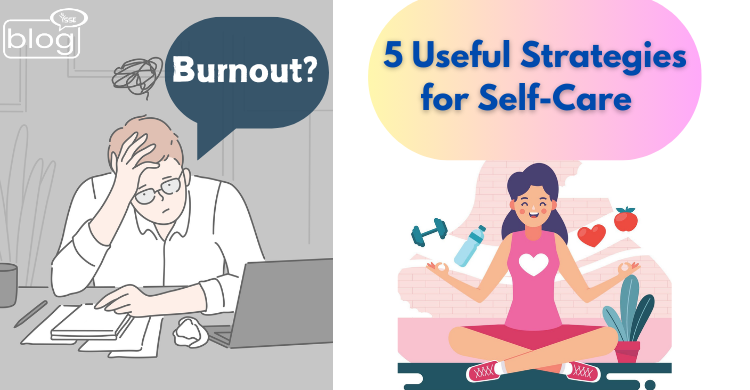Self-care is crucial because it prevents burnout and helps reestablish equilibrium. It frequently serves as a means of readjusting and reestablishing our capacity for pleasure, enjoyment, relaxation, and connection’, according to PSYD’s SABRINA ROMANOFF. But what does self-care mean? Simply, the ability of people, families, and communities to support their health, prevent illness, and manage any form of impairment without outside assistance is known as self-care.
Can bubble baths and pedicures be part of self-care sometimes? Absolutely. However, self-care is much more than tempering yourself; rather, it is how you can be full of your needs and ensure your mental clarity and inner peace. In today’s “hustle culture,” taking time to simply take care of yourself may seem very time-consuming or overwhelming. So here are the 5 most important and easy-to-do self-care practices given below:
- Mindful Breathing Techniques
Have you had a frustrating, hectic day? Just simply try conscious, mindful breathing. We can try the 4–7–8 breathing technique addressed by Dr. Andrew Weil.
- Count of Conscious, deeply by the nose
- Count Seven and Hold your breath
- Count eight and Slowly exhale by mouth
It takes just a few minutes and can relax the body, reduce stress, and also increase focus.
- Practice Mini Meditation Sessions
First of all, the term “meditation” should not overwhelm you. The practice doesn’t need to take a lot of time. Simply include little meditation sessions in your everyday schedule. Make use of smartphone apps such as Headspace or Insight Timer, which provide one to ten-minute guided meditations. Traveling, waiting for something, or taking a brief respite from work are all good times to practice it. It guarantees mental tranquility and improves mental stability.
- Digital Detox
In an era characterized by constant updates and information overload, digital detoxes have become very necessary for preserving mental clarity and calming your mind. Fix specific periods each day or week to disconnect from electronic devices and immerse yourself in different screen-free activities such as reading a book, practicing a hobby, or enjoying nature’s splendor. Or simply, you can just do your daily activities and fully focus on them. Or you can pamper yourself by doing skin care, spa, etc.
- Nurturing Social Connections
Strong social ties can improve our overall well-being and mental health as well. According to the Centers for Disease Control and Prevention (CDC), social connections are strongly linked with improved health outcomes, an increased 50% likelihood of longevity, and improved quality of life.
One study on longevity shows that regularly interacting with our friends, family, and the community can help to provide a sense of belongingness, support, and self-worth, which are very crucial for us to cope with stress, anxiety, and depression.
- Regular Journaling for Emotional Release
Writing down or recording your thoughts and feelings is a powerful way to gain more mental clarity and process your emotional activity properly. Journaling is the best way to express what you might be hesitant to share out loud, serving as a form of emotional release. You can get started with your regular notebook for just a few minutes at the start of the day or before going to bed, whatever is comfortable for you. You can write your feelings and goals, or just simply write how your day went and show your gratitude towards the blessing you have received. You can also write in your phone’s notes, Google Keep or Notion apps, and so many other online tools to keep your journal in practice.
Remember, these practices aren’t about eliminating stress but managing it healthily. Let’s make self-care a priority as we work toward better mental wellness, not only when we’re feeling stressed.
To read more blogs, click here
Writer
Mafroha Somiya
Intern, Content Writing Department
YSSE

